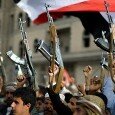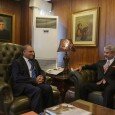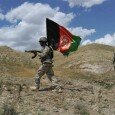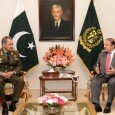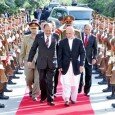By Essa Naqvi –
Diplomacy, that ancient craft, has been hijacked in the country by well-connected part-timers
In the nascent days of the Republic, following Pakistan’s independence in 1947, several non-career officers were sent abroad as ambassadors to represent Pakistan internationally. It was then the need of the time; for the newly born state did not have a proper mechanism to train its officers to be able to do the job effectively. This interim expediency should have stopped afterwards. It didn’t.
Despite the induction of young officers in Pakistan Foreign Services through devised procedures, successive governments (both military and political) continued with the practice of rewarding their cronies by sending them abroad to the countries of their choice. It goes without saying that the countries where non-career diplomats are usually posted are the most-sought-after when it comes to pursuing a better career and life.
During the course of the country’s history, the presence of non-career diplomats has always remained above 20 percent of the total officers representing Pakistan. Political and military governments in the 70s and 80s inducted political appointees and armed forces personnel in Pakistan Foreign Services. In 1993, the PPP government decided that only the career diplomats will be posted abroad to serve as Pakistan’s ambassadors or high commissioners but this decision was never followed by the PPP itself, what to speak of other governments.
Internationally, there are only a few governments that have set the precedence of sending non-career diplomats as their ambassadors or high commissioners in such a big number. The British government has a limit of 1 percent on non-service ambassadorial appointments. The Indian Foreign Office also had a 1 percent quota but even that was abolished a long time ago. The Russians and Chinese governments do not appoint non-career officers in their foreign services.
The US government has a precedence of sending non-career diplomats as its ambassadors to various countries. However, the US government does not blindly appoint non-career officers as its ambassadors on the nominations by the President. There is a proper procedure for the approval of such nominees. Unless, the US Senate approves the nominee, he/she can’t be appointed on an ambassadorial post. Even in the US, the number of non-career appointees does not exceed 15 percent.
Presently, at least 16 non-career political and military appointees are serving as Pakistan’s ambassadors or high commissioners in our diplomatic missions abroad. These part-time diplomats have either retired from the armed forces, foreign services department or have close links with the political and military leaderships of the country. Most of these political and military appointees are currently occupying the ambassadorial abodes in the major capitals around the globe including Washington, London, Beijing, New Delhi and Moscow.
The non-career diplomats presently serving as our ambassadors include: Sherry Rehman (Washington), Wajid Shamsul Hassan (London), Salman Bashir (New Delhi), Khalid Khattak (Moscow), Abdullah Hussain Haroon (UN, New York), Jamil Ahmad Khan (Abu Dhabi), Shafqat Saeed (Paris), Masood Khan (Beijing), Lt Gen ® Muhammad Masood Aslam (Mexico), Fauzia Abbas (Copenhagen), Muhammad Ashraf Saleem (Abuja), Nawabzada Ameenullah Khan Raisani (Masqat), Maj Gen ( r ) Ahmad Nawaz Mela (Kiev), Maj Gen ( r ) Syed Khalid Ameer Jafery (Sarajevo) and Maj Gen ( r ) Muhammad Ejaz Hussain Awan (Brunei). In most of these important capitals, there is a history of one non-career ambassador replacing the other.
It’s an irony that the most important capitals like the US and UK have become a distant dream for career diplomats, who spend decades in service to become eligible for such high profile postings.
After passing the notoriously competitive Central Superior Services examinations, the successful candidates are required to undertake a Common Training Program (CTP) of nine months at the civil services academy in Lahore, followed by a specialized training course at the respective academies. The Foreign Service candidates are trained for an additional nine months at the Foreign Services Academy in Islamabad. After eighteen months of rigorous training, a final passing out examination under the Federal Public Services Commission certifies the candidate for the foreign service.
During the training at Foreign Services Academy, a series of ambassadors belonging to key nations, also visit to deliver lectures. During this time, the under training officials are also exposed to NATO headquarters at Brussels, European Union Parliament and the EU Commission.
After successfully completing the training, the officers occupy their first job as assistant director at the foreign office and after serving there for a year, is sent abroad for their foreign language training abroad. After that, off to serve as third secretary in a foreign mission. Before promotion to the post of second secretary, the officer has to return to the Head Quarters to serve as a deputy director for at least one year. After serving as second secretary for three years, he is promoted to the post of first secretary.
When an officer is promoted to grade-19, he/she becomes eligible to be appointed as a Consular. After getting promoted to Grade 20, he/she is eligible to be appointed as a Minister or Director General of a subsection in the Ministry of Foreign Affairs. Only a DG/Minister level officer can be appointed as an ambassador or high commissioner to any country.
In short, it takes 24 years of rigorous training before an officer is polished to be sent to any diplomatic mission as an ambassador. However, the government is continuing with the practice of appointing non-career diplomats who are often blamed for inadequate political reporting, inefficient interaction with overseas Pakistanis and ineffectual coordination with their host counterparts. Also, they are often blamed for representing their political parties and not their host countries. The retired foreign office officials have all the capability to run the affairs of embassies, but like other direct appointees, they usually do not take their jobs seriously. After all, they do not have to maintain a good service book that could be beneficial for their promotions and later on the retirement benefits.
Recently, various officers at the foreign office wrote resentful letters to the Foreign Secretary, conveying that such postings are not only detrimental to the institution but also to their careers. The appointment of non-career diplomats as ambassadors is the biggest hurdle in the promotions and just appointments of the talented officers of the cadre.
A group comprising of dozens of young officers has been consulting their senior colleagues regarding the filing of a writ petition in the Supreme Court of Pakistan against the political and military personnel’s direct induction as ambassadors. The widespread whispers in the foreign office against such political appointments have increased the frustration in the young officers. In the coming days, this may turn into a practical step like a writ petition to stop these part-time diplomats flying our flag abroad.
The writer is a diplomatic correspondent based in Islamabad






















































































